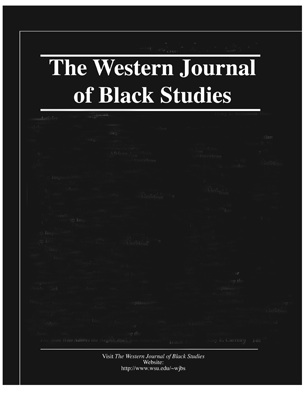Volume 29, Issue 1
Black Same-Sex Couple Households in the 2000 U.S. Census:
Implications in the Debate Over Same-Sex Marriage
Alain Dang - National Gay and Lesbian Task Force, New York
M. Somjen Frazer - Center For Court Innovation, New York
To help inform the debate about the impact of same-sex marriage in the United States, particularly on black same-sex couples, data from the 2000 U.S. Census was analyzed. This study sheds light on the basic demographics of black same-sex couples nationwide, including residence patterns, parenting rates, educational attainment, employment status, income, and housing. Anti-same-sex marriage state and federal constitutional amendments will disproportionately affect black same-sex couples and their families because they are already economically disadvantaged compared to black married opposite-sex couples and white same-sex couples. Despite these disadvantages, data from the 2000 Census also indicate that black same-sex couples form stable families. This is demonstrated by parenting rates in black female same-sex households that are nearly equal to that of black married opposite-sex couples, and that fact that black individuals in same-sex couples also report similar rates of residing in the same residence as they did five years earlier than individuals in married opposite-sex couples.
pp. 521-530
Redlining in a Majority Black City?:
Mortgage Lending and the Racial Composition
of Detroit Neighborhoods
Robert Mark Silverman -University of Buffalo
This article examines the effects of population and housing characteristics on mortgage lending patterns in the City of Detroit, MI. Data from 2000 HMDA aggregate reports and the 2000 U.S. Census are analyzed using multiple regression and stepwise regression. The results from this analysis indicate that after controlling for other population and housing characteristics, the proportion of African American residents in a neighborhood is significantly correlated with a drop-off in mortgage lending activity. In light of these findings, recommendations are made to expand community reinvestment legislation, and assist community development professionals and grassroots activists in addressing lending disparities based on race.
pp. 531-541
Slavery of the Mind:
Carter G. Woodson and Jacob H. Carruthers–Intergenerational
Discourse on African Education and Social Change
Kamau Rashid - University of Illinois, Urbana-Champaign
Carter G. Woodson has characterized the education-socialization process afforded to Africans in America as part and parcel of an institutional imperative for racial subordination. Woodson called this debilitating process mis-education and suggested that its effects permeated the social fabric of the African community. Over the last 30 years African-Centered scholars have echoed Woodson’s contention by critiquing and offering alternatives to the conceptual and institutional framework of mis-education. In Intellectual Warfare Jacob H. Carruthers articulates the challenges and success of this effort. He demonstrates the inter-generational nature of this struggle and situates Woodson’s ideas within the framework of the contemporary African-Centered paradigm. This paper endeavors at a synthesis of these two men’s ideas and seeks to reflect an inter-generational dialogue regarding education-socialization and social change in the African community.
pp. 542-546
Historical Problematic of Afrocentric Consciousness
Tunde Adeleke - University of Montana
The contention that blacks in Diaspora harbor deeply felt and historically rooted consciousness of African affinity and identity is a critical component of the Afrocentric genre. Through historical times, according to this perspective, blacks in Diaspora manifested deep and endearing attachment to Africa. This paper challenges and deconstructs this claim by illuminating not only the fragility of African consciousness among blacks in Diaspora, but also its essentially utilitarian character. Throughout history, Africa has served, and to a certain degree, continues to serve, fundamentally utilitarian function for blacks in Diaspora. Many Afrocentric scholars misrepresent narrow and utilitarian rhetoric of resistance as emblematic of African affinity. Black alienation from the exigencies of the American experience did not necessarily translate into absolute and positive identification with Africa.
pp. 547-557
Reaffirming African American Cultural Values:
Tupac Shakur's Greatest Hits as a Musical Autobiography
Timothy J. Brown - West Chester University
This paper analyzes Tupac Shakur’s Greatest Hits (1998) to reveal: 1) Shakur’s rhetoric employs three African American cultural values (the oral tradition, a diunital orientation, and spirituality), which further defines the unique characteristics that comprise African American discourse; 2) when interpreting Shakur’s message through the lens of African American cultural values, his Greatest Hits functions as a musical autobiography that constructs identity and provides a voice for the Black youth culture. Given these two findings, Shakur extends the cultural values that underlie African American rhetoric to construct a message that is more complex, enlightened, and introspective than what tends to characterize the public criticism of gangsta rap. A rhetorical criticism of Shakur’s Greatest Hits also highlights how using cultural values as a theoretical framework is a way for rhetorical scholars to demonstrate a more complete understanding of the cultural meaning of texts that are created and consumed in the African American community.
pp. 558-573
Book Reviews
The Black Studies Reader
Editors: Jacqueline Bobo, Cynthia Hudley, and Claudine Michel
Reviewer: Aaron Peron Ogletree, Electronic Journal of Sociology
pp. 574-575
Blacks in Colonial Veracruz: Race, Ethnicity, and Regional Development
Author: Patrick J. Carroll
Reviewer: Ramon Julian Vasconcellos, Antioch University
pp. 575-576

| The WJBS site is normally maintained by Tanya Gonzales. Please feel free to e-mail comments, queries, and suggestions. |
Heading using the h3 tag
Lorem ipsum dolor sit amet, consectetur adipisicing elit, sed do eiusmod tempor incididunt ut labore et dolore magna aliqua. Ut enim ad minim veniam, quis nostrud exercitation ullamco laboris nisi ut aliquip ex ea commodo consequat. Duis aute irure dolor in reprehenderit in voluptate velit esse cillum dolore eu fugiat nulla pariatur. Excepteur sint occaecat cupidatat non proident, sunt in culpa qui officia deserunt mollit anim id est laborum.